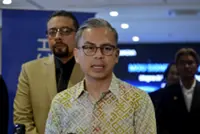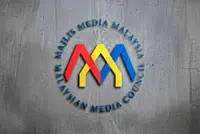PETALING JAYA: The Malaysian Media Council (MMC) has been formed and the Act governing it has come into effect, but the debates on its role as a regulator or protector of media continue.
In a forum session titled “Malaysian Media Council: Regulator or Media Protector?”, held in conjunction with National Journalists Day (Hawana) 2025, panellists discussed how the newly-formed council will govern the local media landscape, the threats from technology and artificial intelligence and how newsrooms will have to evolve with it, among many issues.
Premesh Chandran, chairman of the pro-tem committee of the MMC, said the council will not only serve as a regulator but will also be a key support system for agencies and practitioners, which also safeguards the industry.
He said industry players should view the council’s framework as a strategic collaboration.
“You need to look at media regulations as a form of strategic and regulatory collaboration because you have so many players,” he said.
“You can’t look at the media council in isolation. What you have to look at is how is the regulatory collaboration going to happen across organisations, and that is the key challenge we face,” he added.
Premesh noted that the MMC is a very young organisation, with its trust, strength and institutional capabilities having yet to be built.
“It has to be built by the industry and all those who want to build the council.
“It is not going to be a solution on Day 1, but it provides the regulatory room for us to innovate given the technology and other changes that are pushing the industry forward.”
He said the council has to understand the trends and discuss with its regulatory partners on how to shape the media regulatory environment as a whole.
Academic Prof Datuk Dr Ahmad Murad Merican questioned why there was no provision of ethics in the Bill that was tabled.
“I’m quite disappointed with the Act because there’s no provision for ethics because when it goes to Parliament, the code of conduct must be integral in the Act,” said the professor at International Institute of Islamic Thought and Civilisation (ISTAC-IIUM).
In response, Premesh said this was because the Attorney General Chambers had said during the process of drafting the Bill that ethical codes were a live document that needed change over time. Therefore, amending it would require it to be brought to Parliament.
“It’s not something that should be set in law.
“Therefore, the conclusion was to include, in the Bill, the function of the council is to create standards and implement it,” he said.
Meanwhile, The Star’s senior news editor Datuk Philip Golingai questioned if organisations outside the purview of MMC would be regulated, as the mainstream media would be regulated.
He said this in view of the proliferation of online news sources, some of which were not adhering to ethical reporting standards.
“What would happen to those who are not in the MMC? Do we regulate them as well?” he said.
“On safeguarding media freedom, I think that question is tricky. Yes, MMC is there but I don’t think it can protect the media because there are political interferences on both sides, there are also litigation where we can get sued and we are not protected by the MMC. And then there is also harassment and things like that,” he said.
Premesh said that to address the issue, there should be a form of incentive to encourage participation of media entities in the council and follow its stipulated news standard.
“For example, the government can commit and say that it will only advertise with the media organisation when it becomes a member of the council or even provides training opportunities,” he added.
Centre for Independent Journalism (CIJ) Malaysia executive director Wathshlah Naidu said the MMC’s roles go beyond becoming the guardian of the media landscape, but also as a catalyst for better journalism practice and standards.
“The role should also not be limited to defining ethical standards or code of conduct but also what message it will give to the public.
“Reaching out to the public will be a critical challenge while empowering the media and meeting technological demands,” she said.
In a question-and-answer session later, Premesh said that the MMC is also looking into working with the Human Resources Development Corporation (HRDCorp) to provide training and development for journalists.
“The idea is to have a skills framework accredited by HRDCorp, so that journalists could undertake the necessary training and qualifications,” he said.
Themed “Journalism in the New Era: Embracing AI, Safeguarding Ethics”, Hawana 2025 is organised by the Communications Ministry through Bernama as the implementing agency.





